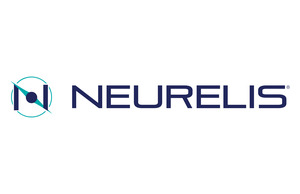Presentation highlights study-enrollment challenges and strategies to overcome potential barriers
SAN DIEGO, Nov. 11, 2024 /PRNewswire/ -- Neurelis, Inc., today announced a presentation on insights into study design from the enrollment process for the new Stellina study investigating VALTOCO® (diazepam nasal spray) for the treatment of seizure clusters in patients with epilepsy aged 2 to 5 years. This age group is not included in the current indication of treatment of seizure clusters in patients with epilepsy aged ≥6 years. The poster presentation will be given at the 53rd Child Neurology Society Annual Meeting in San Diego, November 11-14th.
"Data from clinical studies of repetitive seizures in early childhood are critical to help advance new treatments for a young population with currently limited alternatives," said Adrian L. Rabinowicz, MD, Neurelis Chief Medical Officer. "We are pleased to join the child neurology community and exchange learnings at this year's annual meeting as we focus on improving health outcomes for people with epilepsy."
Highlights of the presentation include the identification of study-enrollment challenges and strategies to overcome potential barriers in young patients with treatment-resistant epilepsy. Identified findings may be helpful in designing future protocols.
The poster titled "Challenges Associated with Enrolling Pediatric Patients with Treatment-Resistant Epilepsy Aged 2–5 Years in a Clinical Trial and Lessons Learned for Future Trials" will be presented on Tuesday November 12th from 12:30 PM-1:45 PM and 5:30 PM-7:00 PM PT. The mission of the Child Neurology Society is to raise awareness about the importance of child neurologists and the health needs of children with chronic neurological conditions.
About Neurelis
Neurelis, Inc., is a neuroscience company focused on the development and commercialization of therapeutics for the treatment of epilepsy and neurologic disorders characterized by high unmet medical need. The FDA has approved Neurelis' VALTOCO® (diazepam nasal spray) as an acute treatment of intermittent, stereotypic episodes of frequent seizure activity (i.e., seizure clusters, acute repetitive seizures) that are distinct from an individual's usual seizure pattern in adult and pediatric patients 6 years of age and older. VALTOCO is a proprietary formulation of diazepam incorporating the science of INTRAVAIL®, a transmucosal absorption enhancement technology that enables the noninvasive delivery of a broad range of protein, peptide and small-molecule drugs. For more information on VALTOCO, please visit www.valtoco.com. For the latest scientific information on VALTOCO, please visit http://www.neurelismedicalaffairs.com/. Neurelis is also developing NRL-1004, an investigational, Phase 1 stage intranasal olanzapine for treatment of acute agitation episodes associated with schizophrenia and bipolar disorder. In addition, Neurelis is also developing NRL-1049 (previously known as BA-1049), an investigational, Phase 1 new chemical entity Rho kinase (ROCK) inhibitor, for the treatment of cerebral cavernous malformations (CCMS), a rare disorder of the central nervous system (CNS). For more information on Neurelis, please visit www.neurelis.com.
Important Safety Information about VALTOCO:
Indication
VALTOCO® (diazepam nasal spray) is indicated for the acute treatment of intermittent, stereotypic episodes of frequent seizure activity (i.e., seizure clusters, acute repetitive seizures) that are distinct from a patient's usual seizure pattern in patients with epilepsy 6 years of age and older.
WARNING: RISKS FROM CONCOMITANT USE WITH OPIOIDS; ABUSE, MISUSE, AND |
|
Contraindications: VALTOCO is contraindicated in patients with:
- Hypersensitivity to diazepam
- Acute narrow-angle glaucoma
Central Nervous System (CNS) Depression
Benzodiazepines, including VALTOCO, may produce CNS depression. Caution patients against engaging in hazardous activities requiring mental alertness, such as operating machinery, driving a motor vehicle, or riding a bicycle, until the effects of the drug, such as drowsiness, have subsided, and as their medical condition permits.
The potential for a synergistic CNS-depressant effect when VALTOCO is used with alcohol or other CNS depressants must be considered, and appropriate recommendations made to the patient and/or care partner.
Suicidal Behavior and Ideation
Antiepileptic drugs (AEDs), including VALTOCO, increase the risk of suicidal ideation and behavior. Patients treated with any AED for any indication should be monitored for the emergence or worsening of depression, suicidal thoughts or behavior, and/or unusual changes in mood or behavior.
Glaucoma
Benzodiazepines, including VALTOCO, can increase intraocular pressure in patients with glaucoma. VALTOCO may only be used in patients with open-angle glaucoma only if they are receiving appropriate therapy. VALTOCO is contraindicated in patients with narrow-angle glaucoma.
Neonatal Sedation and Withdrawal Syndrome
Use of VALTOCO late in pregnancy can result in sedation (respiratory depression, lethargy, hypotonia) and/or withdrawal symptoms (hyperreflexia, irritability, restlessness, tremors, inconsolable crying, and feeding difficulties) in the neonate. Monitor neonates exposed to VALTOCO during pregnancy or labor for signs of sedation and monitor neonates exposed to VALTOCO during pregnancy for signs of withdrawal; manage these neonates accordingly.
Risk of Serious Adverse Reactions in Infants due to Benzyl Alcohol Preservative
VALTOCO is not approved for use in neonates or infants. Serious and fatal adverse reactions, including "gasping syndrome," can occur in neonates and low-birth-weight infants treated with benzyl alcohol–preserved drugs, including VALTOCO. The "gasping syndrome" is characterized by central nervous system depression, metabolic acidosis, and gasping respirations. The minimum amount of benzyl alcohol at which serious adverse reactions may occur is not known.
Adverse Reactions
The most common adverse reactions (at least 4%) were somnolence, headache, and nasal discomfort.
Diazepam, the active ingredient in VALTOCO, is a Schedule IV controlled substance.
To report SUSPECTED ADVERSE REACTIONS, contact Neurelis, Inc. at 1-866-696-3873 or FDA at 1-800-FDA-1088 (www.fda.gov/medwatch).
Please read full Prescribing Information, including Boxed Warning.
Contacts:
Brittany Bradrick, Chief Operating Officer and Chief Financial Officer, +1 858 251 2100
SOURCE Neurelis, Inc.

WANT YOUR COMPANY'S NEWS FEATURED ON PRNEWSWIRE.COM?
Newsrooms &
Influencers
Digital Media
Outlets
Journalists
Opted In





Share this article